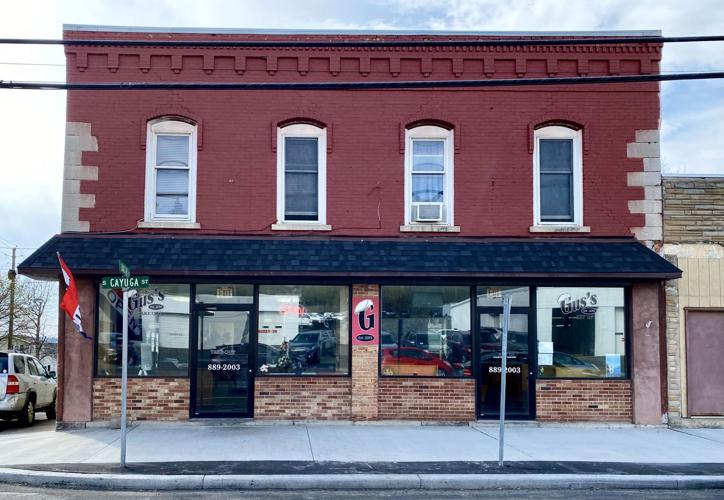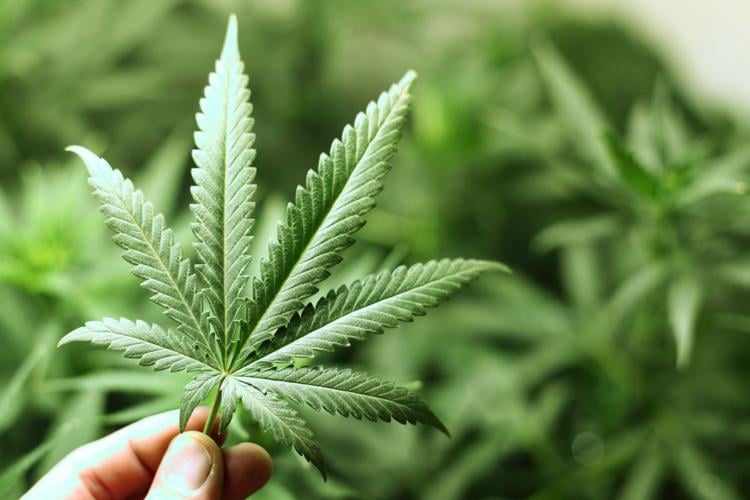Preempting a possible attempt by the Cayuga Nation to open a marijuana dispensary, the village of Union Springs has drafted a local law prohibiting sales of the drug there.
The law would make Union Springs the first municipality in Cayuga County to opt out of parts of the Marijuana Regulation and Taxation Act signed by Gov. Andrew Cuomo March 31.
The law, an amendment to the village's 2013 zoning law, would prohibit marijuana dispensaries and consumption sites, as well as the sale of tobacco and tobacco products, including vaporizers and e-cigarettes. Wholesale growing and processing of marijuana and marijuana products would also be prohibited everywhere but the village's agricultural residential and commercial zoning areas, where it would be allowable by special permit. The law says its purpose is to prevent "the negative secondary effects of cannabis and nicotine use, cultivation, processing and sale."
People are also reading…
Union Springs Mayor Bud Shattuck told Ë®ąűĹÉAV on Friday that any businesses in the village that sell tobacco and tobacco products, namely the Cayuga Nation's Lakeside Trading store, would be allowed to continue those sales through a grandfather clause. The law will be reviewed by the county's General Municipal Law committee April 15, and the village plans to pass it in May.
The village is moving fast on the law, Shattuck said, because it believes the Cayugas intend to open a marijuana dispensary at a property they're purchasing, 121 Cayuga St., in the middle of Union Springs. Officials worry that would create overwhelming traffic in the village, similar to past lines at Lakeside Trading, as well as a negative influence on local youth.
Municipalities in the Cayuga County area are weighing the pros and cons of opting out of parts of New York state's law legalizing marijuana.
"To move something like that into our community — we're concerned because students walk by that block to get to school. It didn't seem like a good thing," Shattuck said. "But if they hadn't bought that property in the village, if they decided to dispense out of (Lakeside Trading), then we probably wouldn't have started this."
Clint Halftown, the Cayugas' federally recognized representative, confirmed to Ë®ąűĹÉAV that the nation is purchasing the property, which is currently the home of Gus's Pizzeria. But he said there are no plans to open a dispensary there. The Cayugas are simply making the purchase, he continued, because they want to acquire any local commercial properties they can.
Still, Halftown asked why the village would opt out of allowing marijuana sales.
"I just don't know why they're opting out of something that could bring them more revenue," he said. "If they don't need it then good for them, but I do."
Two Union Springs residents also cited potential revenue when they objected to the local law at a public hearing the village held last week, Shattuck said. Under the new state law, municipalities that don't opt out of allowing marijuana sales will receive 75% of the local tax revenue they will generate when they begin April 1, 2022. The county will receive the remaining 25%.Â
But, as Shattuck explained at a meeting of the village planning board on Thursday, he doesn't expect that would be the case in Union Springs.
"We know if the Cayuga Nation's doing this, there is no tax revenue because the state's only going to kick back what they receive, and the Cayuga Nation doesn't pay taxes," he said.
Shattuck said at the meeting that he was told the nation intends to open a dispensary in the village by Lee Alcott, the nation's attorney at the firm Barclay Damon, though the mayor didn't mention him by name. Asked to confirm that, Alcott sent Ë®ąűĹÉAV the following statement: "As with its right to conduct gaming in the village, the Nation will pursue any and all opportunities it deems appropriate."
Alcott likewise did not respond to a question asking whether the Cayugas would challenge the village's law. Shattuck said he believes they will, but he further believes it should be the state, not the municipality, that shoulders the burden of defending the law because it is a result of the Marijuana Regulation and Taxation Act.
Halftown also did not directly say whether the Cayugas would challenge the village law.
"They do what they feel is right for their people," he said. "We're a sovereign nation, so we have to do what we feel is right for our people."
Shattuck does feel confident the village is doing what is right for its residents. Last week's public hearing saw a total of 23 people speak, he said, and all but four supported the local law. The other two objectors cited their own use of marijuana. The mayor clarified that Union Springs is not against the drug outright, and residents will be welcome to their 3 ounces and grow their six plants.
"I grew up in the '60s," he said. "We don't care."
1 in 3 Americans Now Live in a State , Where Recreational Marijuana Is Legal. Voters in four states approved ballot measures to legalize marijuana on Election Day. 16 million residents of Arizona, Montana, New Jersey and South Dakota . now join the 93 million Americans who already lived in states where cannabis had been legalized. Several other states were expected to pass similar measures, but campaigns failed due to issues created by the pandemic. Advocates say that the move toward legalization in both red and blue states demands uniform action from the federal government. Regardless of who controls the White House, the House and the Senate, we should demand landmark federal marijuana reform in 2021, Steve Hawkins, Marijuana Policy Project, via Politico. Advocates also consider the passage of marijuana legalization ballots as victories for criminal justice reform
Lake Life Editor David Wilcox can be reached at (315) 282-2245 or david.wilcox@lee.net. Follow him on Twitter .






















